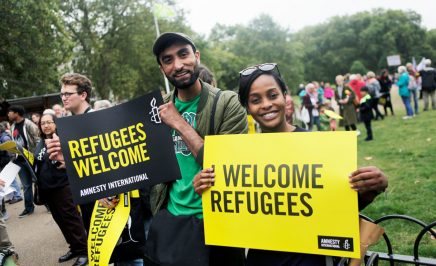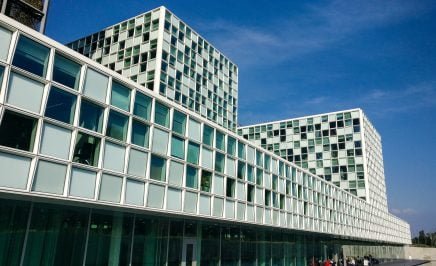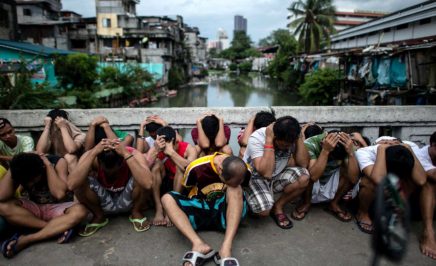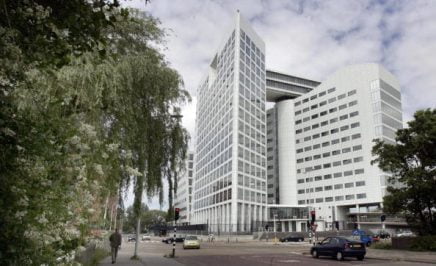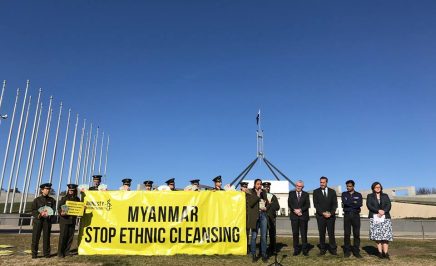The International Criminal Court (ICC) must urgently open a preliminary examination into crimes against humanity, including the slaughter of dozens of children, committed during Philippine President Rodrigo Duterte’s murderous “war on drugs”, Amnesty International said today.
Thousands of people have been killed by police since Duterte took office in June 2016, yet not a single police officer has been held to account for any of the crimes committed.
“It is time for international justice mechanisms to step in and end the carnage on Philippine streets by bringing the perpetrators to justice. The country’s judiciary and police have proven themselves both unwilling and unable to hold the killers in the ‘war on drugs’ to account,” said James Gomez, Amnesty International’s Regional Director for Southeast Asia and the Pacific.
“The ICC must open a preliminary examination into the situation and cast its net widely. Responsibility is not just limited to those pulling the trigger, but also those who order or encourage murders and other crimes against humanity.
“President Duterte and other high-level government officials have openly advocated for killings, which could amount to criminal responsibility under international law.”
Crimes against children
Amnesty International’s call on the ICC comes amid growing evidence of crimes against humanity committed against children in the “war on drugs”. As many as 60 children have been killed in anti-drug operations since June 2016.
Family members told Amnesty International they witnessed police shoot children dead at point-blank range as they were begging for mercy.
“They pointed a gun at my head [and] told me to get out… I heard shouting and three gunshots, then three more shots,” said O, the partner of a 17-year-old victim, who was killed after he was woken up in the middle of the night.
An Amnesty International research team witnessed how large numbers of children suspected of drug-related offences were kept in overcrowded and unsanitary holding centres for minors in the capital, Manila. Some said they had been beaten and tortured by police on their arrest, and claimed police had framed them by forcing them to pose in photographs with drugs that had been planted.
The killing of 17-year-old Kian delos Santos in August sparked a national outcry. Police claimed Kian had been shot in self-defence, but CCTV footage and eyewitness testimony showed how plainclothes officers dragged away the unarmed teenager and shot him dead in an alleyway.
More than 12 police officers have been investigated for the killing after the case received international attention, but no one has yet been held to account.
The ICC recently indicated that it will investigate and pay special attention to crimes against children.
“Police in the Philippines have killed dozens of children since 2016. Children have also been tortured and detained in appalling conditions, while families have been torn apart,” said James Gomez.
“The case of Kian delos Santos has rightly sparked outrage. The blatant lies by officers to try to cover up their role in the cold-blooded murder of a child shows that the police cannot be trusted to investigate themselves.”
Time for the ICC to step in
In January 2017, Amnesty International recommended that – unless Philippine authorities took key steps to end drug-related killings – the ICC should open a preliminary examination into the crimes.
The organisation called for an immediate end to extrajudicial executions, plus an end to the incitement and encouragement of such killings by high-ranking officials, including the President. Amnesty also urged the authorities to launch an impartial and efficient investigation into all suspected unlawful killings.
However, the Philippine authorities have completely failed to heed any of these calls.
“How many bullet-riddled bodies must be found dumped on the streets before the international community takes action?” said James Gomez.
“The ICC must act now. We believe the “war on drugs” meets the threshold of crimes against humanity under the Rome Statute, and international pressure is needed to persuade the Philippine authorities to change course.”

